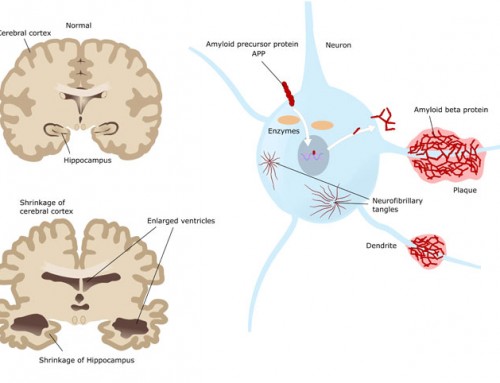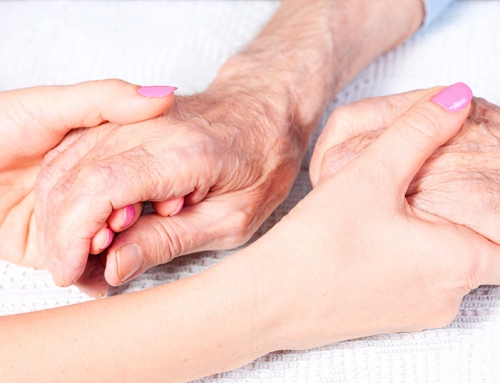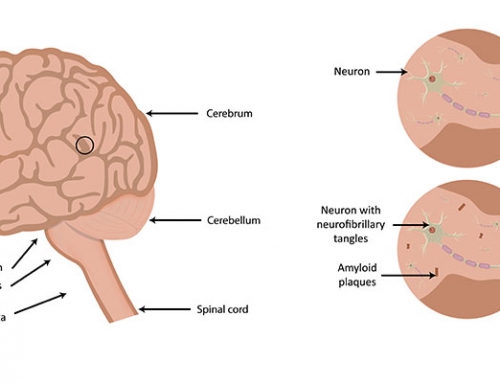[Updated 2015 Sep 24]. In: Pagon RA, Adam MP, Ardinger HH, et al., editors. GeneReviews® [Internet]. Seattle (WA): University of Washington, Seattle; 1993-2015.
Caring for a person with Alzheimer’s disease. (Page Last Updated: January 22, 2015). Alzheimer’s Disease Education & Referral (ADEAR) Center – A Service of the National Institute on Aging, National Institutes of Health.
Are there any special diet and exercise recommendations for people with Alzheimer’s?
A balanced diet and regular activity can help to maintain mental and physical health for people with Alzheimer’s. It can also help to lower other health risks such as obesity, coronary heart disease and high blood pressure. A balanced diet involves consumption of a food assortment in the proper proportion and amount. Foods in these four groups: fruits and vegetables, whole grains, fish and meats and dairy products are encouraged. Lots of water and fluid intake are also encouraged. Food with high sugar, high salt or high fat content should be limited e.g. candies, deep-fried foods and processed meats.
A healthy diet is very important for people with Alzheimer’s. Insufficient eating can lead to weight loss and other complications such as susceptibility to infection, weariness or decreased muscle strength. Insufficient fluid intake can lead to increased confusion, dry mouth, constipation and urinary tract infections. There is no specific, prescribed diet and exercise for Alzheimer’s. However, there are some points for consideration on meal and exercise planning for people with Alzheimer’s.
As the disease progresses, Alzheimer’s patients often suffer from decreased appetite, side effects of medications, motor and sensory problems, cognitive and behavioral issues. A poor appetite could result from insufficient exercise, decreased sense of taste, depression or chronic diseases. When caring for Alzheimer’s patients with a reduced appetite, the caregiver could try to encourage eating by preparing several small meals throughout the day instead of large meals at normal meal times.
Side effects of Alzheimer’s medications can play a role in causing changes in appetite, bowel movements or dehydration. However, there are ways to ease side effects, such as dry mouth or constipation. To ease dry mouth symptoms, the caregiver could prepare softer food, or offer sour candy to promote saliva production. The caregiver could also increase the fiber content in meals and ensure an adequate amount of fluid intake to ease constipation.
Motor and sensory problems arise in Alzheimer’s patients in the more advanced stages of the disease and can lead to weight loss, malnutrition and dehydration. Problems can include difficulties holding utensils properly due to decreased coordination, difficulties swallowing and chewing and an inability to recognize thirst and hunger. To help with these problems, the caregiver could prepare bite-sized food or blend or puree the food to minimize chewing and facilitate swallowing. It is also important to ensure the food is at the correct temperature to avoid painful burns to the mouth.
Cognitive and behavioral issues also occur in Alzheimer’s patients, including difficulties focusing and recognizing foods, or issues expressing their own needs. Alzheimer’s patients often develop preferences on certain foods and habits and these need to be accommodated to ensure an adequate food intake is maintained.
Apart from diet, exercise is also beneficial to people with Alzheimer’s, since it might help to improve their appetite and make them sleep better. Exercise does not have to be strenuous, but just simple exercises such as walking, indoor bicycling or laundry folding might be sufficient to decrease anxiety and increase sense of accomplishment. It is advised that people with Alzheimer’s should start slowly and ensure adequate warm up and cool down to avoid injuries. The caregiver would also need to ensure the environment is safe for the Alzheimer’s patient, as they might not be aware of their surroundings. Alzheimer’s patients should be encouraged to take part in activities that they enjoy, such as gardening, yoga, tai chi, as it will likely help with improving their mood and easing symptoms.
References:
Alzheimer’s Disease Fact Sheet. (Page Last Updated: July 20, 2015). Alzheimer’s Disease Education and Referral (ADEAR) Center – A service of the National Institute on Aging, National Institutes of Health.
Bird TD (1998). Alzheimer Disease Overview.
DNA In the News2017-04-06T00:20:03+00:00






